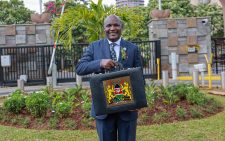Changsha parley advanced Xi’s 10-point FOCAC plan

Last week’s high-level meeting in Changsha between China’s top diplomat Wang Yi and representatives from 53 African countries sent a powerful and optimistic message: China is moving with clarity and purpose to implement the 10-point action plan unveiled by President Xi Jinping during the 2024 Forum on China-Africa Cooperation (FOCAC) in Beijing.
Far beyond symbolic diplomacy, the gathering reflected a growing confidence and maturity in China-Africa relations, highlighting Beijing’s readiness to transform promises into concrete outcomes that support Africa’s development ambitions.
Held on the sidelines of the third China-Africa Economic and Trade Expo, the Changsha meeting served as the first major checkpoint since President Xi’s announcement of the action plan.
It showcased China’s commitment to deepening its ties with Africa across multiple fronts – economic, technological, cultural, and diplomatic – based on mutual respect and shared aspirations.
Wang Yi’s remarks at the meeting captured this spirit clearly, emphasizing China’s unwavering support for Africa’s sovereignty, development priorities, and its central role in global affairs.
One of the most notable actions supporting this vision came with China’s decision to extend zero-tariff treatment to 98 per cent of taxable goods from 53 African countries.
This move opens vast new opportunities for African exporters, making it easier for a diverse range of products – from agricultural goods and textiles to manufactured items – to enter the Chinese market competitively.
Importantly, the arrangement embraces nearly the entire continent, creating a more inclusive and equitable trade platform. It is a decisive step forward in delivering on the FOCAC commitment to enhance Africa’s capacity for independent, export-led growth.
The Changsha meeting also demonstrated significant progress on another key pillar of Xi’s action plan: infrastructure and industrial cooperation.
Chinese support for major transport and energy projects across the continent continues to expand, and in Changsha, these efforts were reinforced through productive bilateral exchanges.
Whether in the revitalisation of iconic projects like the Tanzania-Zambia Railway or in the construction of new industrial parks and logistics hubs, China’s approach is grounded in facilitating long-term transformation through connectivity and capacity-building.
A standout example of practical cooperation highlighted during the meeting was in the field of agriculture. The success story of Gambian entrepreneur Musa Darboe, who has used Chinese hybrid rice technology to support food production in West Africa, exemplifies the potential of agricultural technology transfer.
This aligns directly with the FOCAC plan’s goal to strengthen food security and rural development in Africa. With such partnerships, African nations are finding effective tools to address pressing challenges while laying the groundwork for sustainable prosperity.
The Changsha meeting also laid the foundation for stronger people-to-people ties—another priority in the action plan. The upcoming 2026 China-Africa Year of People-to-People Exchanges aims to expand educational, cultural, and youth engagements between the two regions.
The writer is a Journalist and Communication Consultant.















